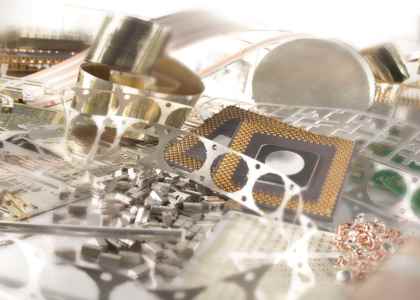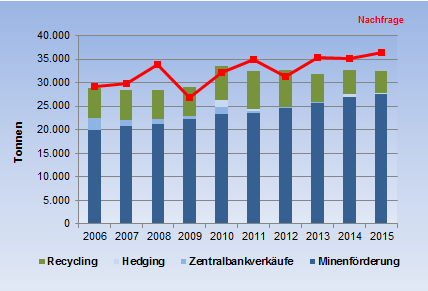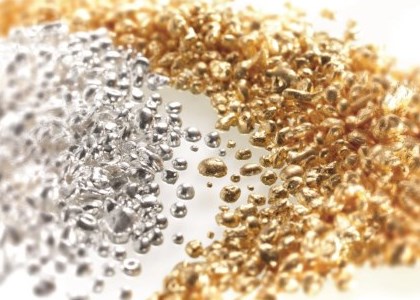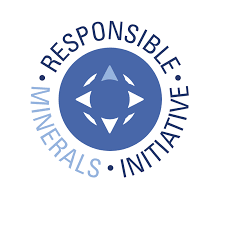Precious metal recovery
Urban Mining for the world of tomorrow
Our modern world is full of precious metals. No matter if power and information are transmitted in cars, household appliances, at the computer, in mobile phones or machines or whether a decorative surface for jewellery and dental use is to be achieved - precious metals are one of the most important resources of our economy. Since their discovery thousands of years ago, they have fascinated us with their looks and abilities. Their limited natural appearance gives them permanent value. They have served as coin metal and asset protection since the early days. Today, they are valued particularly because of their high conductivity for electricity and heat, as well as for their resilience against oxidation. Our modern, digital life would be impossible without precious metals.
All products and assets are subject to a life cycle; they will be used up at some point or survived by progressing development. Precious metals are not. This is another benefit of the valuable metals: They can be regenerated as often as necessary. No matter in which function precious metals are used in products: it would be irresponsible and not economic to let them be lost in the waste. Even during the production of new products, precious-metal-containing wastes arise at regular intervals that are worth being recycled.

Typical examples of precious-metal-containing separation materials
This is where the previous metal separation facilities, such as DODUCO from the Goldstadt Pforzheim (anniversary festival 2017: 250 years of Goldstadt) come in. Their main task is it to recover precious metals from production wastes and to save them from final loss. They therefore secure part of the raw material supply of the economy and form the basis for the future progress of technology. In particular in light of continually rising demands in the industry, and the barely rising production volumes, precious metal recycling helps essentially to fill the offer gap and to protect natural resources. In 2015, nearly 15% of the global silver offer and about 25% of the gold offer came from recycling.

Global offer of and demand for silver
(Data: World Silver Survey 2015)
The production and raising of the existing precious metals concealed in used products is therefore also called "Urban Mining". The procedures used at DODUCO for previous metal recovery are much less destructive and efficient than the new production in mines. In 2015, DODUCO processed approx. 1,800 tons of precious-metal-containing production residues. Nearly 500 tons of silver were refined and returned to their pure form at 99,99% Thus, the traditional company from Pforzheim is one of the greatest silver processors in Europe and as an internationally certified processor and silver ingot provider listed on the "Good Delivery List" and an Associated Member of the LBMA (London Bullion Market Association).
The following pages contain more detailed explanations the different procedures of recovery of silver, gold, platinum, palladium and rhodium. Certain non-previous metal by-produces such as copper, tungsten or indium can also be recycled and returned to the economic cycle.
No matter the proceedings used for recycling: the target is always the same: Producing precious metals at the highest quality and purity. Gained from secondary raw material sources to protect nature and mankind.

Fine silver and fine gold in granulate shape after recovery (purity of 99.99%)
-
-
Contact person
Fabian Gall
Sales precious metal-recycling
+49 7231 602 586Andreas Hermann
Sales precious metal-recycling
+49 7231 602 585 -
Wiki of electrical contacts
-
Certification
DODUCO Contacts and Refining GmbH is an accredited Silver LBMA Good Delivery List Refiner. This logo is a trade mark of The London Bullion Market Association.
The gold recovered by DODUCO Contacts and Refining GmbH and used in new products is certified as conflict free by the Responsible Minerals Initiative (RMI).




